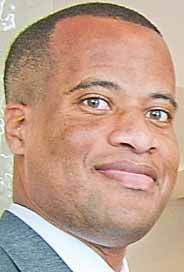Revamp of city's charter explored

Youngstown Mayor Jay Williams
SEE ALSO:
MAYOR TO CONVENE REVIEW COMMISSION
YOUNGSTOWN
The city council of the future could include fewer members, different ward boundaries and no term limits, all under the auspices of an appointed executive.
Those are some of the possibilities Mayor Jay Williams said he’d like to see discussed by a charter review commission.
Williams announced Wednesday that he plans to create a commission of nine to 13 members in May or June to discuss proposed changes to the charter that governs the city.
Some proposals could be placed in front of city voters as early as the November elections, Williams said.
According to the city charter, Williams’ decision is long overdue.
“A charter review committee will be convened by the mayor every four years to review and consider recommending amendments to the charter,” reads the charter’s preamble.
The last charter review committee was convened in 2004, by then Mayor George M. McKelvey. That committee discussed several proposals, but only two made it to the ballot.
One requires city council to review and update when necessary Youngstown’s comprehensive plan after each census.
The other eliminated council legislative aides and their annual salaries of $27,817.24 — $28,117.24 for the council president’s aide — and gave the money directly to council members. Before the change, council members each made $600 a year, and the council president received $900 in annual salary.
Both charter amendments passed in the Nov. 2, 2004, election.
Restructuring city council — such as reducing the number of members, making some of them at-large members, cutting their annual salaries and redistricting the ward’s boundaries — all are up for consideration, the mayor and city council members said.
Other potential items include giving extra credit to city residents who take civil service tests for city jobs, eliminating the eight-consecutive-year term limit for council members and the mayor, and having the city run by an appointed executive rather than an elected mayor, Williams said.
The commission also could make a recommendation to reduce the number of municipal court judges from three to two, but that change would require action by the state Legislature, the mayor said.
All commission recommendations must be approved by city council before being placed on the ballot for voter approval.
Changing the structure of city government to save money is now being discussed because of Youngstown’s financial issues and the recent census that saw the city’s population continue to significantly drop, council members and Williams said.
Williams said he wants city council to select two members of the commission; the mayor would select two members of his administration. The mayor would appoint the rest of the commission, but he said they wouldn’t have ties to city government.
Williams said he wouldn’t seek a third four-year term if legislation to remove term limits is ultimately approved by voters.
The mayor said he favors redistricting the city’s wards so each has close to the same number of residents.
Currently, there are wards, such as the 1st that includes downtown and portions of the East and South Sides, with a fraction of the population of others, such as the 4th on the West Side.
“We should allow our citizens to choose the type of government they want,” said Councilman John R. Swierz, D-7th. “With the population loss, it’s more important to look at the charter [to reduce expenses]. Maybe we should get rid of some departments.”
Councilman Paul Drennen, D-5th, said city officials need to take a “serious” look at changes to benefit Youngstown.
Drennen asked that a comparison to similar cities be done to find best practices. The administration did a review of some of the issues being discussed and will expand its research, Williams said.
 43
43
